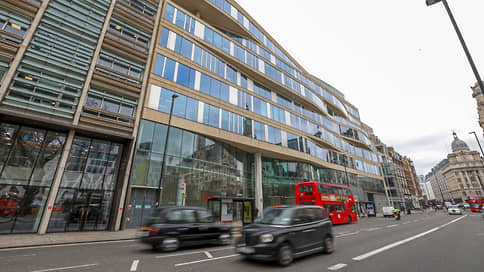De-Russification of supplies – Newspaper Kommersant No. 181 (7382) of 09/30/2022
[ad_1]

The London Metal Exchange (LME), previously operating within the framework of sanctions imposed by the authorities, for the first time thought about independently abandoning the trade in Russian aluminum, nickel and copper. Large Russian metallurgical companies sell little metal directly on the exchange, but their clients-traders use it. If the ban is introduced, the global market is likely to face an increase in metal prices, which already happened in 2018 and 2022. According to experts, the withdrawal of Russian metal from the LME will strengthen the position of Chinese commodity exchanges.
LME has begun consultations on banning new supplies of metal from Russia to its warehouses, writes Bloomberg citing their sources. According to the agency, the exchange is preparing to launch a discussion on the need to block the shipment of Russian metals, which is a landmark moment. Earlier, the exchange stated that it did not plan to go beyond the sanctions restrictions: now Russian non-ferrous metals, except for gold, are not under sanctions. In March 2022, the relevant committee of the exchange voted to ban the shipment of Russian copper to LME warehouses, but this decision was advisory in nature. In addition, the LME promised to respond quickly if sanctions are imposed against Russian non-ferrous metal producers.
Large metal producers, as a rule, prefer to sell their products under long-term contracts directly to end consumers, and the surplus to traders. Thus, one of the largest buyers of aluminum from Rusal is the international trader Glencore, which actively uses the LME for its operations.
It is not yet clear how a ban on the supply of Russian metal can be formulated, and whether its origin will be taken into account, regardless of who the owner is.
Rusal considered supplying aluminum to LME’s Asian warehouses from the port of Vladivostok, as some Western buyers refuse to buy Russian aluminum, and the domestic Russian market is shrinking, reported on September 20 Bloomberg. The agency emphasizes that LME inventories usually increase during a slowdown in the economy. However, warehouse deliveries from a major producer could drive down the LME price of the metal (because inventory data gives traders an idea of whether there is a shortage or surplus in the metal).
In the history of the LME, there has already been an attempt to abandon Russian metal, and it did not lead to anything good. In 2018, the exchange was forced to refuse to accept Rusal’s aluminum when it ended up on the SDN list as a result of US sanctions. As a result, metal prices rose sharply.
In March 2022, fears of a cessation of nickel supplies from Russia led to a sharp closing of short positions in this metal on the LME and a rise in prices above $100,000 per 1 ton. Now the price is at the level of $21 thousand per 1 ton.
The possibility of supplying metals to the LME warehouses existed, but it was rarely used by Russian players, says Sergei Grishunin from the NRA. The warehouses of the exchange can hold up to 2 million tons of aluminum, 1 million tons of copper and 500 thousand tons of nickel. “This is a significant consumer, but deliveries to the warehouse are rather a forced measure, which is applied when it was not possible to find a buyer,” the expert says. He believes that it is possible to ban the purchase of Russian metal through the stock exchange, but with a direct contract, this ban does not make sense, it just complicates the document flow somewhat. “Metal price formation will still be tied to the most liquid metal market, that is, the LME. In general, the ban does not create any new difficulties that are different from those that Russian business is coping with today,” he said. However, such a decision could negatively affect the positions of the London Metal Exchange and move liquidity to the Shanghai Exchange.
[ad_2]
Source link





